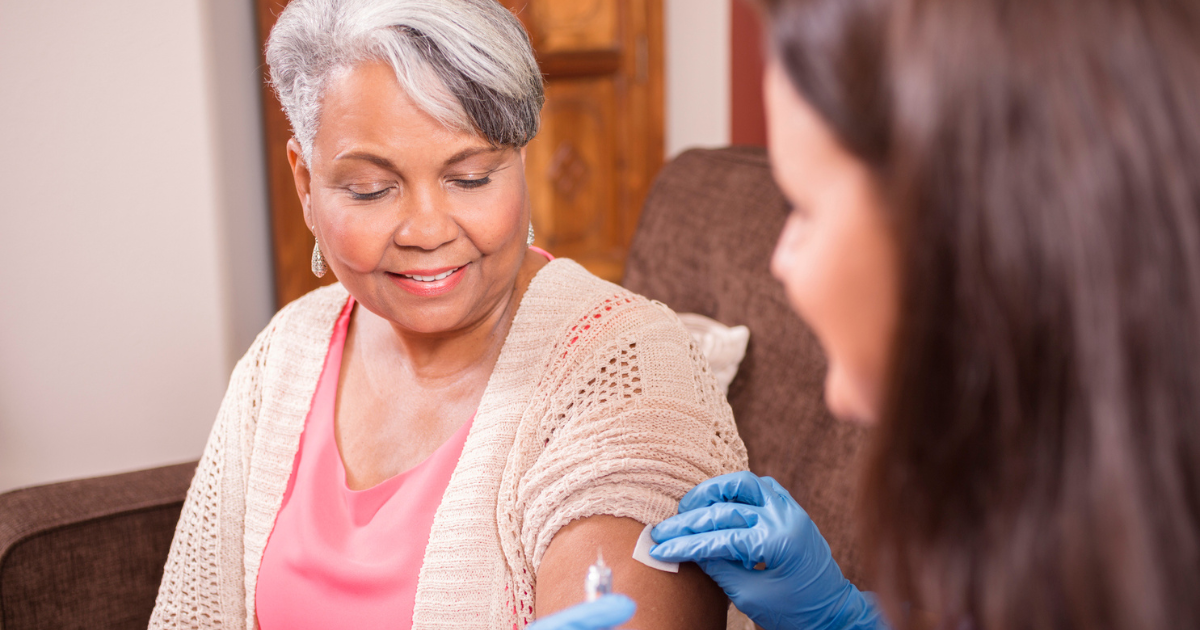Who should get the new RSV vaccine?

Respiratory syncytial virus, or RSV, is a common respiratory infection that can cause severe complications in certain individuals, particularly infants and older adults. The recent development of RSV vaccines has provided hope in preventing the spread of this virus.
“It’s exciting because previously, there hasn’t been a vaccine for RSV, so the only way for adults to reduce risk was through hand hygiene and avoiding close contact with others that have RSV,” says pharmacist Matthew Burdett, PharmD. “Now there are two different RSV vaccines that just came out this year.”
Why is RSV a concern?
RSV is a viral infection that affects the respiratory system, causing cold-like symptoms, such as coughing, sneezing and fever. While most healthy individuals recover without complications, RSV can be concerning for infants and older adults. In these groups, RSV can lead to severe respiratory illnesses, including bronchiolitis and pneumonia, which may require hospitalization and can be life-threatening.
RSV vaccines
The two new RSV vaccines are GlaxoSmithKline’s Arexvy™ and Pfizer’s Abrysvo™. Both are inactivated vaccines, meaning they do not contain live virus.
The vaccines aim to stimulate the body's immune response to fight off RSV infection. They are only recommended for certain groups, including:
1. Infants: The vaccine is particularly beneficial for infants, as they are at high risk of severe RSV infection. It is recommended for infants aged 6 months and older.
2. Older adults: The Centers for Disease Control and Prevention says adults 60 years of age and older may receive a single dose of RSV vaccine using shared clinical decision-making. “This means that health care providers and patients should have a conversation to determine if RSV vaccination will be beneficial,” Dr. Burdett says.
3. Individuals with certain risk factors: There are several risk factors for severe RSV disease. These include:
- Cardiovascular disease
- Lung diseases like asthma and COPD
- Kidney disorders
- Liver disorders
- Moderate or severe immune compromise
- Diabetes
- Advanced age, residing in nursing homes and frailty
4. Pregnant women: Recently, Pfizer’s Abrysvo™ gained a second indication for women who are between 32 and 36 weeks gestation from September and January. This allows their babies to be born with antibodies against RSV.
Additionally, AztraZeneca’s Beyfortus™ is a new product for use in newborns. It is a monoclonal antibody delivered in a single shot, protecting infants against RSV.
Benefits and Risks
The new RSV vaccines offer several potential benefits, including a reduced risk of severe RSV infection, hospitalization and associated complications.
As with any vaccine, there are potential risks and side effects. These may include pain or swelling at the injection site, fatigue and headache. Dr. Burdett adds, “In both vaccines, there were very small increases in atrial fibrillation and inflammatory neurologic events, such as Guillain-Barré syndrome, which will be a focus point of post-marketing surveillance.”
Effectiveness
The effectiveness of the new RSV vaccine in preventing infection has been demonstrated in clinical trials. Dr. Burdett says Arexvy™ showed an 83% reduction in risk of getting RSV in the first season after immunization, which dropped to 67% over two seasons.
“While 83% is a significant risk reduction, it is worth pointing out the absolute risk reduction was relatively low,” he says. “In the trial, there were about 12,000 people in the treatment group, and 12,000 in the placebo group. In those groups, seven people in the treatment group had RSV, while 40 people in the placebo group tested positive.”







